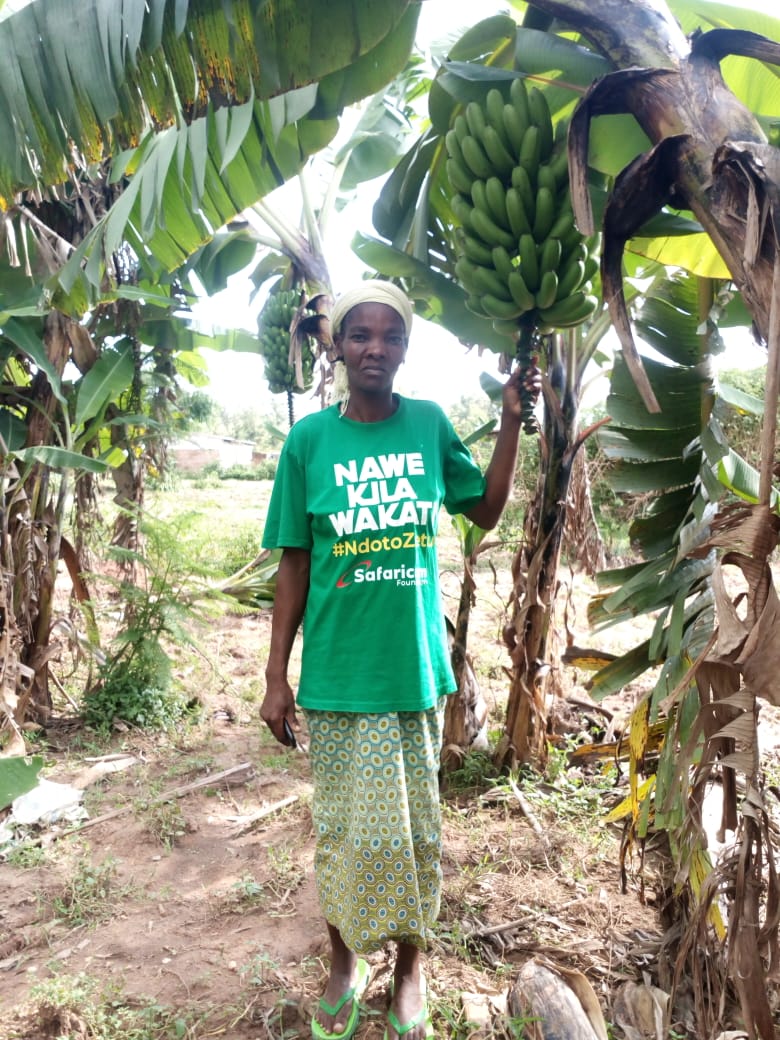“My neighbors also panic, and we feel completely helpless,” says Mary Anyango Apiyo, who runs a small stand and beauty salon in the slum area of Kaptembwa in the city of Nakuru, Kenya.
Since the authorities closed the schools to prevent the spread of corona virus, her five children are at home. She herself can’t stay at home. She must work to provide for herself and her children, but customers are few.
“I’m afraid my kids will get sick, and if they do, I won’t have enough money to pay for health care,” says Mary Anyango Apiyo. She is a member of a housing cooperative supported by We Effect.
She and the children wash their hands with soap and water. They can’t afford to buy hand sanitizer
– We have been told to stay away from each other but how should we do that? I live in a small house with my five children. We live in a slum area that is cramped and water and sewage does not work properly. If the virus starts to spread here in Kaptembwa, I think it will be difficult to limit, she adds.
The total number of confirmed cases of corona infection in sub-Saharan Africa has so far been less than 1,500, but the World Health Organization warns that there may be many unidentified cases due to limited resources to test for the virus. By Tuesday, March 24, Kenya had reported 16 cases of infection, Rwanda 36 cases, Tanzania 12 cases and Uganda 9 cases of confirmed infection.
However, there is a great and widespread concern what major outbreaks would entail, which is clear among the partner organizations to We Effect and Vi Agroforestry on the continent.
– When the farmers in our cooperative have meetings, everyone is afraid to touch each other and to even be close to each other. This means that we slide apart, instead of supporting each other and having a nice time together as we used to, says Joseph Itoka, who is a member of a farmer’s cooperative supported by Vi Agroforestry in Mara, Tanzania.
– My biggest concern is that many people will die from this virus. I don’t think our country has enough resources to deal with a major outbreak, he adds.
All countries in the region have introduced comprehensive measures to curb the spread of the infection. Travel in and out of the countries is limited, schools and marketplaces have closed, events and crowds of people are limited, and they are urged not to travel collectively. It is very hard on the local economy.
“When I take my bananas to the market to sell them, there is no one there to buy them,” says Metrine Wasike, who belongs to the Kimaeti farmers CBO, supported by Vi Agroforestry, in the Bungoma district of Kenya.
Many believe that the corona crisis may weigh heavily on the region’s already fragile economy, even in the longer term.
-I’m afraid it will have drastic consequences for coffee farmers here in Meru as 99 percent of the coffee is exported here in Kenya, said James Kiogora, who works for the coffee cooperative Meru Central Coffee Cooperative Union Limited in Kenya supported by We Effect.
-If the coffee farmers can’t sell their beans to Europe, what happens to their families? he adds.
When even the strongest economies in the world find it difficult to cope with the corona crisis, how will Africa’s economies manage? When even the Italian healthcare system collapses during the corona crisis, what will be the effect of a major outbreak in countries like these? In Italy there are 41 doctors per 10,000 inhabitants, in Kenya there are only 2 doctors per 10,000 inhabitants.
– I talked to a friend who is a doctor last night and he told me that at the largest state hospital in the county there are only two intensive care places. I have a very hard time believing that we have enough resources to cope with an outbreak, says James Kiogora member of the coffee cooperative Meru Central Coffee Cooperative Union Limited.
Those who can have bought groceries in case everyone is forced to stay home altogether. However, food prices have raised, and in many places’ basic goods such as cornmeal and rice are completely out of stock. So far, the drastic measures taken to limit the spread of the infection have not been followed by any economic support like those announced by European governments.
-The economy will stagnate and then fall to the bottom because the resources that would otherwise have been used to improve the economy will now be used to care for the sick,” says Tanzanian farmer Joseph Itoka.
The stand owner Mary Anyango Apiyo in the slum area of Kaptembwa also looks bleak in the future.
– Small businesses like mine have already been hit hard so if this continues, we will see a major economic crisis, she says.
The sister organizations We Effect and Vi Agroforestry collaborate with 200 partner organizations in a total of 24 developing countries in the world to combat poverty with cooperative solutions. In recent weeks, the corona crisis has posed major challenges for both the organization’s operations in the regions as well as for that of the partner organizations.
– We try to get a clear picture of how our partners organizations are affected by the corona crisis. We are used to working in complex environments and we will also deal with this challenge, but it will require time, innovation and collaboration, says Anna Tibblin, secretary general of We Effect and Vi Agroforestry.
